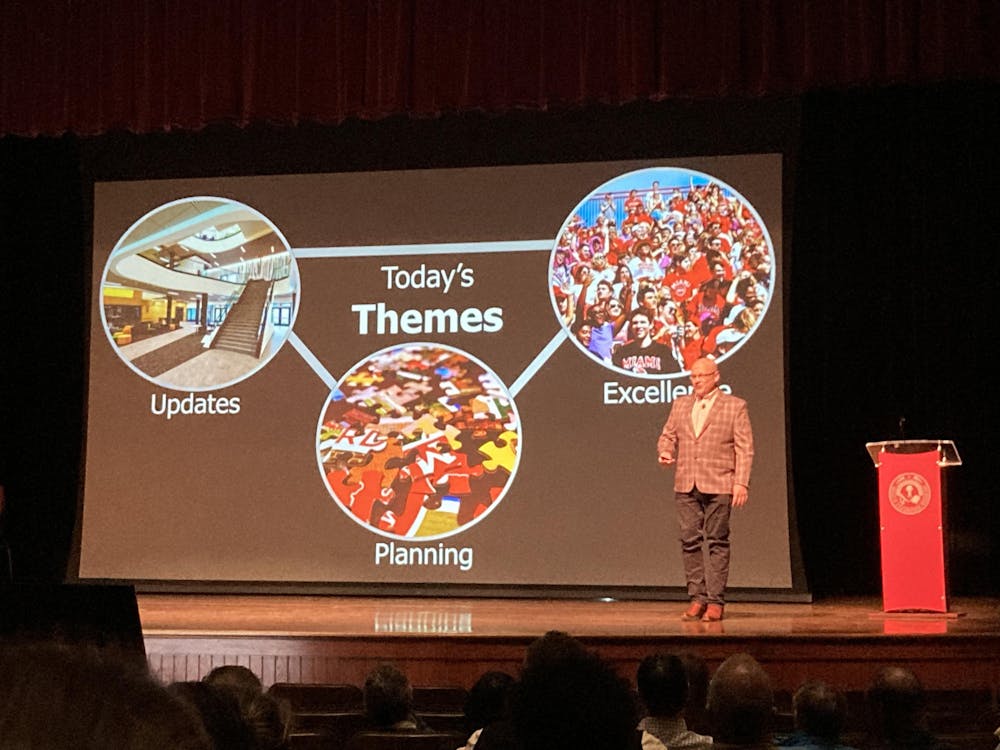Miami University President Gregory Crawford highlighted the future of Miami and the upcoming issues facing higher education during his spring university update on Thursday, Feb. 15.
Crawford began by showing an updated strategic plan following what he called “disruption” in higher education. The plan outlined the rest of the calendar year and the interactions between sub-committees and Miami’s Board of Trustees, including final approval of a new plan in December.
Crawford said that throughout the new strategic plan, Miami wants to keep what makes it special.
“When you're planning, you don't want to remove what's so special about the place even when you're innovating,” Crawford said. “There's a special sauce that makes Miami University Miami University.”
Crawford said that Miami will think of both the future of higher education and the needs of current students when deciding the direction of Miami.
Included in Miami’s plans is the acquisition of the Vora building next to Miami’s Hamilton campus. The building will create a relationship with Butler Tech, a local career high school. The acquisition was made possible with grants from state, county and local sources.
“They'll be training their students and all of our students and faculty and staff, and it'll just be a great resource,” Crawford said.
Despite Miami’s Free Application for Federal Student Aid (FAFSA) confirmation deadline being extended until March 15, Miami has a higher number of confirmed students for the class of 2028 than this time last year for the class of 2027. Miami has received over 2,000 more applications this year than last, over 900 more admitted students and 90 more committed students.
“We expect it will be a slow process as people wait on some of these offers [from other universities],” Crawford said.
Despite the increased number of applications and committed students, only four more first-generation students have committed along with 15 more students of color.
Following the update on the future of the university, Crawford highlighted students and faculty that have impacted Miami in the last year. Included in this section was Mollie Duffy, a political science major who created the Democracy Bus which highlighted student voting.
Duffy’s effort helped Miami earn the distinction of a voter-friendly campus, of which only 58 campuses hold the honor.
Enjoy what you're reading?
Signup for our newsletter
Despite being proud of her work, Duffy said that she didn’t see the acknowledgment coming.
“I think it's so funny that [the Democracy Bus] got recognized so much in some capacity,” Duffy said.




